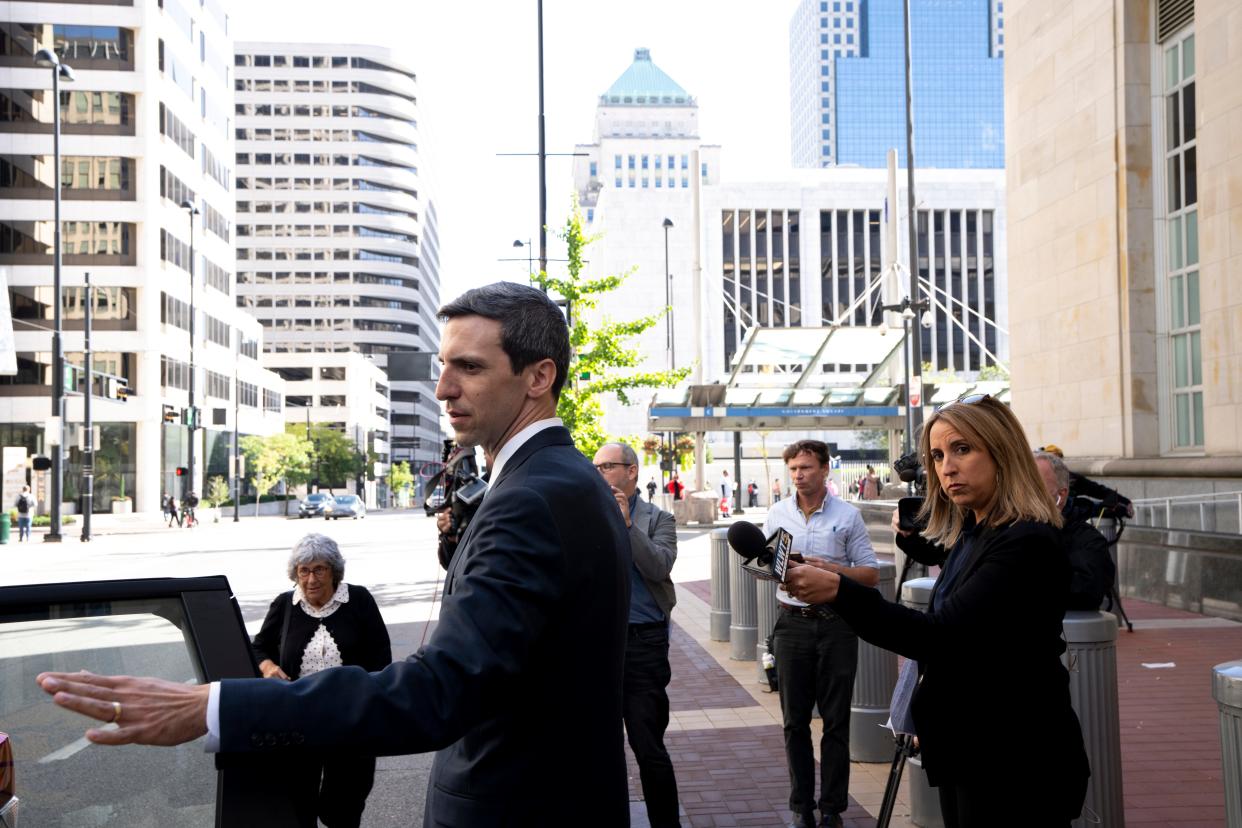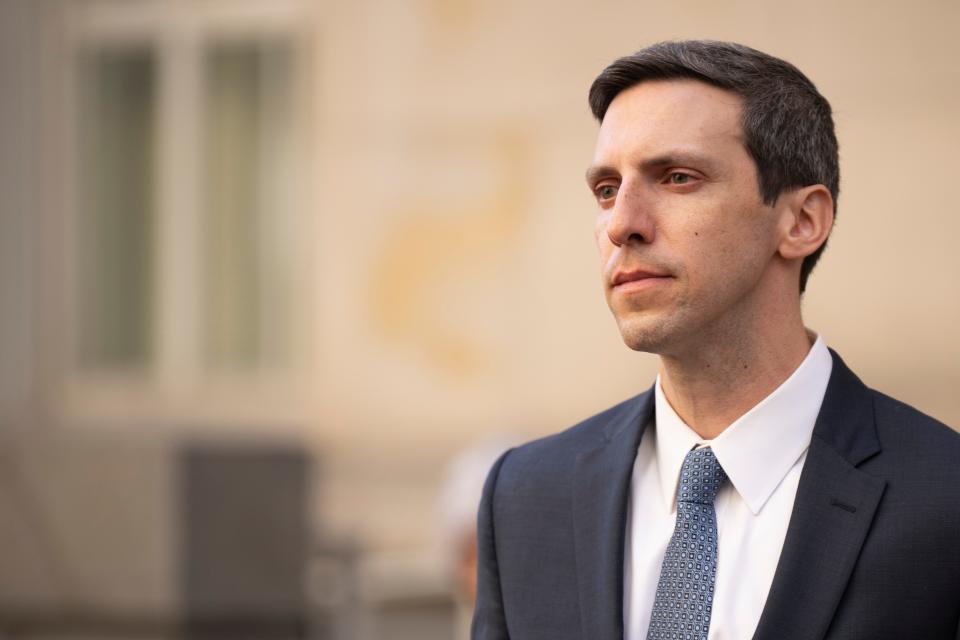PG Sittenfeld seeks new trial, calling the case 'a year-long prosecutorial Truman Show'

- Oops!Something went wrong.Please try again later.
Attorneys for former Cincinnati City Councilman P.G. Sittenfeld have asked a federal appeals court to throw out his convictions, saying the case against him was "a year-long prosecutorial Truman Show" based on a "manufactured sting."
If the convictions on charges of bribery and attempted extortion are allowed to stand, his attorneys say, it would be akin to "ushering in a First Amendment Ice Age," where every politician could face prosecution for fundraising.
The "Truman Show" line refers to a 1998 movie about a man who grew up living an ordinary life. But unbeknownst to him, he is the star of a reality television show who is constantly filmed by hidden cameras, footage that is broadcast worldwide.
The 52-page appeal filed Dec. 11 in the 6th U.S. Circuit Court of Appeals makes the case for a new trial. It raises many of the same arguments Sittenfeld made during his trial, in post-trial motions (which were denied) and at sentencing.
It says the government failed show clear and unambiguous proof of corruption − an explicit quid pro quo − as is required by a decades-old U.S. Supreme Court ruling, and that the government wrongly amended the indictment.
That Supreme Court case, McCormick v. United States, arose out of the 1985 prosecution of Robert McCormick, a member of the West Virginia House of Delegates. He sought and received campaign donations, in cash, from a group of doctors who wanted a renewal of a program that helped foreign doctors practice in the state. McCormick then sponsored legislation to re-enact the program.
McCormick was convicted of bribery, but in 1991 the Supreme Court overturned it.
Prosecutors have not yet filed a response to the appeal.

Sittenfeld, 40, once on track to be Cincinnati mayor, was convicted by a jury in July 2022. Prosecutors said he sought donations to his political action committee in exchange for votes. He was sentenced in October to 16 months in prison, a term that is set to start Jan. 2.
Sittenfeld is represented by four high-powered attorneys from Washington, D.C., Cleveland and New York City who are experts in corruption law.
Highlights from the arguments include:
The opening line
"Politicians cannot sell their official powers − not for bags of cash, not for Rolexes or luxury travel, and not even for campaign contributions. But, identifying a campaign contribution as a bribe is uniquely fraught because such contributions are always based on expectations of what the candidate will do in office. Candidates, likewise, know their policies, promises and pledges will affect their ability to raise funds."
'Year-long prosecutorial Truman Show'
"The government engineered a sting to see if (Sittenfeld) would accept a campaign donation in exchange for supporting a local development project. To maximize the sting's chances of success, the FBI approached Sittenfeld through one of his longtime existing donors, in connection with a project Sittenfeld had already agreed to support."
"Yet despite the choreography, Sittenfeld never bit. Over the course of a year-long prosecutorial Truman Show, Sittenfeld rejected the only express quid pro quo his friend offered, cautioned him on the legal limits around donations, turned away contributions that did not comport with obscure campaign-finance rules, and even invited two undercover agents to a dinner party with the U.S. Attorney."
'First Amendment Ice Age'
"Indeed, if this evidence suffices, McCormick has no meaning; prosecutors would be free to conjure a bribery charge against every politician, ushering in a First Amendment Ice Age."
'12 average jurors'
"To be sure, it is easy enough to see how 12 average jurors might brand as 'corruption' any conversations that include both policy commitments and fundraising. But that is precisely why McCormick insisted on more − 'an explicit promise or undertaking by the official to perform or not to perform an official act' in exchange for a donation. There is no evidence of that."
'Within the heartland of his political identity'
"For over a year, a team of undercover agents and their cooperators had the sole objective of persuading Sittenfeld to take a bribe. They targeted a project within the heartland of his political identity, which he in fact already supported, and used a longtime friend and donor as a point person. Even still, the government could not muster anything beyond vague phrases, parsed inferences and circumstantial arguments − surely the realistic floor for a year-long gambit where a politician is surreptitiously recorded nonstop as trained FBI agents try to ply him with a bribe."
This article originally appeared on Cincinnati Enquirer: PG Sittenfeld appeal: Case was 'a year-long prosecutorial Truman Show'

